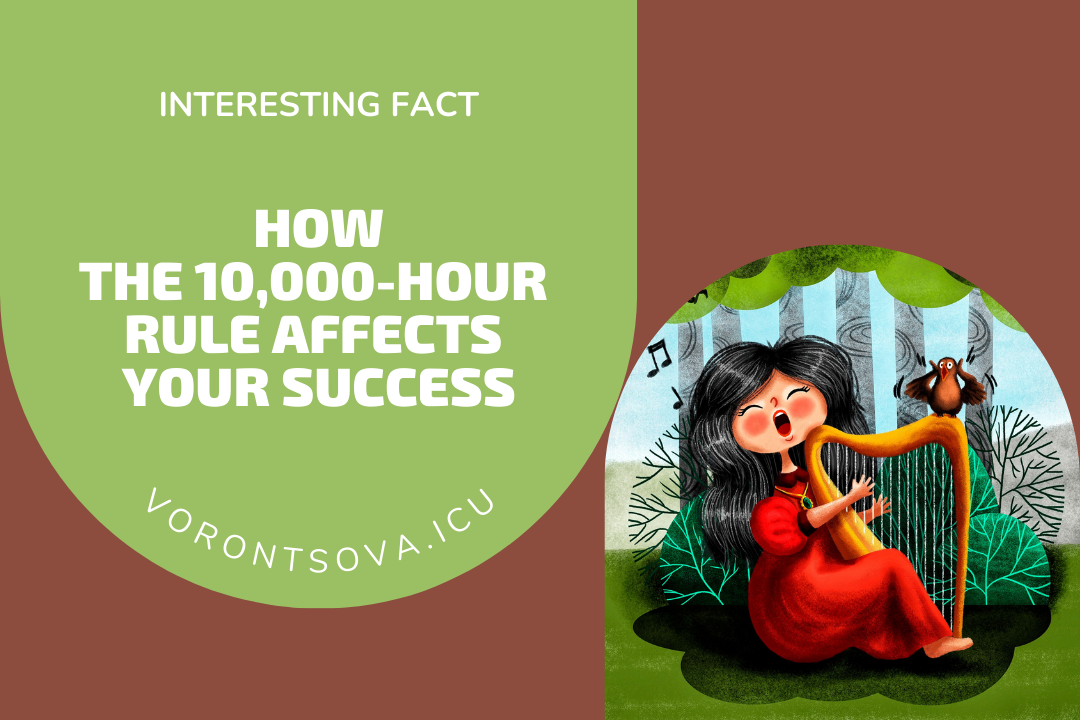In the world of achievement and mastery, there is an interesting study known as the “10,000 Hour Rule.” This rule, proposed by Malcolm Gladwell in his book Outliers, states that to achieve outstanding mastery in any field, you need to spend 10,000 hours practicing and learning. Let’s take a closer look at what this rule is, how it works, and how it can be applied to different areas of life.
The idea for the 10,000 Hour Rule comes from the research of Anders Ericsson, who researched how excellence is achieved in different fields including music, sports, and science. It is from his research that this rule emerged. The main message is that practice and diligence play a crucial role in achieving outstanding results.
The key aspects of the 10,000 Hour Rule are:
- Practice and diligence: the main idea is that a person becomes an expert in their field by spending 10,000 hours on systematic practice and self-improvement.
- Long-term effort: 10,000 hours is a lot of time, and it requires several years of effort and patience.
- Systematic approach: it is important that practice is systematic and focused on improvement. It is not just the time spent in the field, but the pursuit of excellence.
Application:
- Music and art: many great musicians and artists have achieved their mastery by spending many hours practicing and perfecting their art.
- Sports: athletes who have reached Olympic heights or become champions have often practiced for many years to achieve their goals.
- Programming and science: in the fields of technology and science, systematic practice and learning new skills can lead to expert knowledge.
- Personal development: even in everyday life, such as improving communication skills or time management, systematic practice can lead to outstanding results.
The 10,000 hours rule has generated discussion and criticism in academia. Some researchers argue that time spent practicing is not always the sole determinant of outstanding results. But despite this, the concept continues to inspire many people and help them work hard towards their goals.
The 10,000 hour rule serves as a reminder that mastery and success usually doesn’t come all at once. It requires constant practice, self-discipline, and passion for your field. While it is not an absolute formula for success, it allows us to realize that we can achieve outstanding results if we work hard and strive for excellence. So if you dream of something bigger, don’t be afraid to take up the practice and start your journey to mastery.
The question of what plays a more important role in achieving success – innate talent or 10,000 hours of practice – has long been a subject of debate. Both sides have arguments, and the answer depends on the context and the specific situation. Let’s look at both aspects:
Talent:
- Starting Advantage: Innate talents can give you a starting advantage. If you have a natural talent in a certain area, you will probably start at a higher level than someone who doesn’t have that talent.
- Speed of learning: people with talent can learn new skills and concepts more quickly, which can accelerate their progress.
- Inspiration: by learning about your talent, you may be more motivated to pursue a certain area and set high goals.
10,000 hours of training:
- Practice and diligence: empirical studies show that systematic practice and persistent effort can compensate for a lack of talent. Many famous personalities have achieved success by investing a lot of time and effort in practicing.
- Experience and improvement: constant practice allows you to develop skills and gain experience, which over time can lead to outstanding results.
- Accessibility to all: practicing is accessible to everyone, regardless of talent. Everyone can work on themselves and their skills.
It is important to realize that the answer to this question is not absolute. In real life, many factors influence success, including passion, mentorship, resources, and the ability to learn. Some areas may require more focus on practice, while in others talent may be more important. Ultimately, a combination of talent and persistence is often the best way to achieve success.

